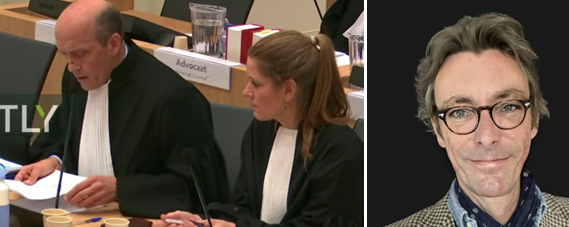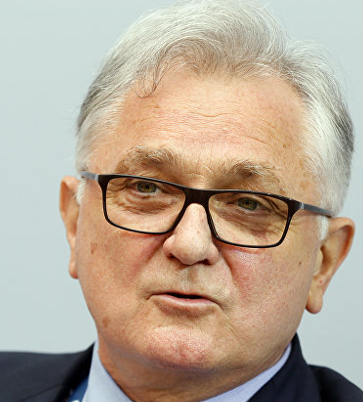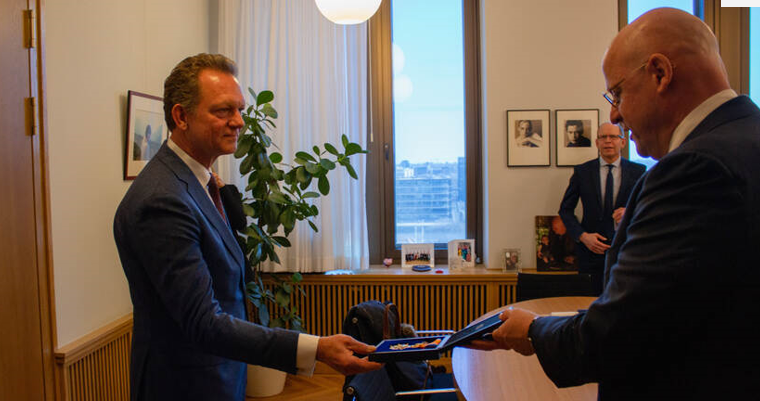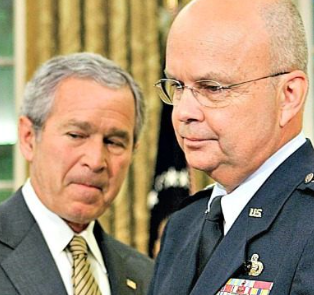HOW BEING POOR AND SOVIET HAS HELPED SAVE RUSSIANS FROM COVID-19 — THE TUBERCULOSIS STORY AND THE YELTSIN-CHUBAIS VIRUS
by John Helmer, Moscow
@bears_withApril 14, 2020
Inoculation against tuberculosis, the official Soviet state policy for almost a century, continues to shield the Russian population with a higher level of immunological resistance than those in Europe and the US who lack the vaccination. This has also been a well-tested finding in western and Indian medical publications; in India vaccination against TB is mandatory. This link between the anti-TB vaccination and the rate and severity of Covid-19 infection is now official Russian policy.
Caution: the link is a statistical correlation. It is not a finding that is clear on the biomedical mechanism which is at work in the lungs.“According to some data, those who are vaccinated with BCG [Bacillus Calmette–Guérin vaccine], the course of Covid-19 is lighter,” the Health Minister Vitaly Murashko announced earlier this month. “This is now widely discussed in international reviews. The fact is that it can have a certain meaning, it probably can,” Veronika Skvortsova followed, telling national television news. “For now I think that we won’t discuss the mechanisms of immune restructuring, but [CBG vaccination] does play a role.” Skvortsova was Murashko’s predecessor as health minister between 2012 and February of this year; she is now director of the Federal Medical-Biological Agency (FMBA).
But because the correlation is a strong one, there’s another conclusion which the Russian medical administration has begun to emphasize. This is to rebuild the public health measures of the Soviet period which were destroyed by the virus introduced by President Boris Yeltsin and his chief of staff and privatizer of state property, Anatoly Chubais, from the virus source in Washington during the 1990s.
Tuberculosis (TB) is a bacterial infection; Covid-19 is a virus; both attack the lungs. The first successful vaccine against TB was developed during the first years of the 20th century at the Louis Pasteur Institute in Paris by Albert Calmette and Camille Guérin. Named after them, the Bacillus Calmette-Guérin (BCG) was introduced to humans in 1921.
In Russia, following an epidemic of TB during the First World War and then the civil war, the Bolsheviks established the first specialised TB institute in Moscow in 1921. This was followed a year later by the First All-Russian Tuberculosis Congress which initiated state-funded research, surveys and treatment programmes across the Soviet Union. The result was an immediate contraction in the mortality rate.
With recurrences due to the German invasion and World War II, Soviet screening and treatment programmes, including BCG, resumed their effectiveness from 1960. This continued to 1990 but according to this recent history by Russian specialists, came to stop in 1991 with the disintegration of the Soviet Union, the liquidation of public health funding in Russia, and the devaluation of the medical profession. Yeltsin was in charge; Chubais was responsible.
“In the 1990s, the financial support of the Russian Federation TB control program decreased significantly, and the low compensation of TB practitioners led to a massive exodus of specialists from medical and research facilities. Cessation of TB screening activities and irregular and insufficient drug supplies led to an almost threefold increase in TB incidence and mortality over the course of 8 years, and the emergence of drug-resistant strains of Mycobacterium tuberculosis.
“A lack of adequate infection control practices increased nosocomial [hospital origin] infection. In the 1990s, the importance of the social role of hospitalization increased, and malnutrition became a significant problem again.”
YELTSIN-CHUBAIS VIRUS — TUBERCULOSIS CASE RATES IN RUSSIA, 1971-2012
(per 100,000 population)
Source: https://www.atsjournals.org
The revival of public health spending during President Vladimir Putin’s term in office has been slowed down by the continuing privatization of medical resources and their unequal distribution; by the development of drug-resistant strains of TB; and by outbreaks of TB in Russian prisons, in drug addiction groups; and among associated HIV patients.
YELTSIN-CHUBAIS VIRUS — TUBERCULOSIS MORTALITY RATES IN RUSSIA, 1971-2012
Anatoly Chubais (above right), the last survivor of the virus of the 1990s still in an official position, currently runs the state high-technology investment holding, Rusnano. There he oversees state budget investments in commercial biomedical start-up companies. In March 2012, Rusnano created Rosnanomedinvest (RMI) with a $760 million fund to invest in medical technologies and drugs for domestic production and exploitation by stock-exchange listed companies. Inside Russia, the race to develop, test, and introduce an effective Covid-19 vaccine is also a race between this mutation of the Yeltsin virus, the market model of public health, and the reviving Soviet state model. For more on who is behind the commercial market, read this.
The arrival in Russia of the Covid-19 virus, principally in Moscow (two-thirds of all tested cases), has resuscitated the Russian medical profession, especially the state-paid specialists and administrators of public health facilities. Putin has encouraged their national media prominence just as he has delegated policy-making and direction to the state doctors, to the federal health ministry and associated regulators; and to the Mayor of Moscow, Sergei Sobyanin; for details, read this.
The Covid-19 briefing held by Putin on April 7 signaled the start of a revolution of sorts — the arrival of a medical administrative elite more independent than they have been in years from the state health budget and from market sources of money, such as the specialised clinics and the pharmaceutical companies.
Left to right: Vladimir Kutyryov, 69, Director of the Mikrob Russian Anti-Plague Research Institute; Rinat Maksyutov, 38, General Director of the Vektor State Research Centre of Virology and Biotechnology; Victor Fomin, 41, Vice-Rector of the Sechenov First Moscow State Medical University; and Andrei Svistunov, 54, First Vice-Rector of the Sechenov First Moscow State Medical University.
Unlike their peers in other sectors of the Russian economy, this group has been educated, trained and advanced in Russia, without American or European education or employment.
Also for the first time since the Soviet Union, the April 7 briefing signaled the Kremlin’s acceptance of medical research as the driver of state policy. This, for example, is how Vladimir Kutyryov explained to Putin the model to be followed in curtailing the spread of the corona virus. “What are the peculiarities of the new infection? First, its structure. Over 80 percent of cases are mild, 15 percent are severe and five percent are critical. The main feature is that asymptomatic carriers with no clinical presentation can pass on the virus.
This is the feature that defines this entire situation. Another important feature is that the latency period is 14 days. While flu takes 3–5 days, this infection takes 14, which is quite a long latency period. For the most part, this is why the anti-epidemic measures were taken. To date, the entire world has been relying on a well-known model showing that if restrictive measures are not taken against acute viral respiratory infections in time, they will spread and the morbidity will spike sharply, as we can see today.”
Putin didn’t argue. This is native Russian expertise subordinating the business oligarchy which has dominated Putin’s domestic policymaking until now. Public advocacy of the role of BCG in treating Covid-19 is another sign of the Soviet approach. In contrast, the defenders of privatization, market medicine and drugs, austerity in public spending, and liquidation of the state role – Chubais and his principal protégé Alexei Kudrin, currently head of the Accounting Chamber – have retreated into silence. The only argument now over the model of the TB campaigns is a medical one.
On April 4, Alexey Mazus, a specialist on HIV infection and a virology programme director at the Russian Academy of Medical Sciences, announced his backing for the idea that BCG creates an immunological barrier in the body reducing the severity of Covid-19 symptoms. Expanded state funding for BCG vaccination of children, according to Andrei Fisenko, director of research on children’s health under the Health Ministry, may not prevent the development of coronavirus infection, but it definitely prevents the development of microbial complications after this infection.
The impact of the BCG vaccine on the course of coronavirus disease has yet to be proved, according to Evgeny Shlyakhto, Director General of the Almazov National Medical Research Centre in St. Petersburg. The research is under way, he noted, to “analyze the groups: what they were vaccinated with, when, and with what vaccines. This will be a multi-factor analysis.” Because the protective effect of BCG takes a month to develop, he added that it is “meaningless” to adopt a policy of urgent BCG vaccinations now.
Alexei Popovich, an immunological specialist, also cautioned: “To date, this is nothing more than an interesting hypothesis, it has not yet been fully confirmed, there are only scattered data, both laboratory and epidemic. That is, it will take time to confirm.”
For the time being, the research on the link between CBG vaccination and resistance to Covid-19 is coming from the US, Germany and India.
This report from New York, published in January 2020, found that after controlling for the income of country populations, the absence of mandatory, state financed BCG vaccinations is correlated with both higher case incidence for Covid-19, and also for higher death rates from the virus. Russian data weren’t included in this study.
Source: https://www.medrxiv.org
Russia is included in this report released from researchers at the University of Michigan early this month. The correlation holds after applying for age and social class. “The presence of mandated BCG policies was associated with a significant flattening of the exponential increase in both confirmed cases and deaths [from Covid-19] during the first 30-day period of country-wise outbreaks. This effect held after controlling for median age, gross domestic product per capita, population density, population size, geographic region, net migration rate, and various cultural dimensions (e.g., individualism and the tightness vs. looseness of social norms). Our analysis suggests that mandated BCG vaccination can be effective in the fight against COVID-19.”
This recent study from Chandigarh, India, also included Russia. “We compared the impact of COVID-19 in terms of case fatality rates (CFR) between countries with high disease burden and those with BCG revaccination policies presuming that revaccination practices would have provided added protection to the population against severe COVID-19. We found a significant difference in the CFR between the two groups of countries. Our data further supports the view that universal BCG vaccination has a protective effect on the course of COVID-19 probably preventing progression to severe disease and death. Clinical trials of BCG vaccine are urgently needed to establish its beneficial role in COVID-19 as suggested by the epidemiological data, especially in countries without a universal BCG vaccination policy.”
Source: https://www.medrxiv.org/
Testing of the clinical mechanism for the immunological value of BCG for Covid-19 has been reported by the Max-Planck Institute and Indian serum development institutes. Read more: https://www.mpg.de/ How this may work at the cellular level is reported by this group of French researchers.
An Irish report, published a week ago, adds to the US epidemiological evidence, and indicates that the race to market a vaccine against Covid-19 is being led by researchers who started with a CBG prototype.
Russian medical policymakers are now emphasizing the CBG story, both to reinforce their new administrative powers and source of budget funds; and also to assure that in the race to profit from the first effective Covid-19 vaccine to reach the global market, the Russian state will not depend on foreign commercial interests.
Left to right: Health Minister Vitaly Murashko; Deputy Prime Minister
supervising health, Tatiana Golikova; Veronika Skvortsova, head of the
Federal Medical-Biological Agency (FMBA); a Soviet poster of the
1960s on how to limit infectious sneezing of influenza germs.
“In the end, if the relationship is proven”, Vzglyad summed up from its medical expert sources, last week in Moscow, “it will become the second ‘tuberculosis factor’, thanks to which Russia and the Russians were relatively prepared for a global pandemic. The first has been the availability of artificial ventilation devices. In Italy, there are eight per 100,000 people; in the UK, 13; in the US, 19; in Russia, 27.3; and in Moscow, 40. And all because of tuberculosis.”
NOTE: The left lead poster advises “Get vaccinated against tuberculosis”. The right poster, in Russian and in Azerbaijani, says: “We will defeat tuberculosis by fighting for a healthy life.”








No comments:
Post a Comment